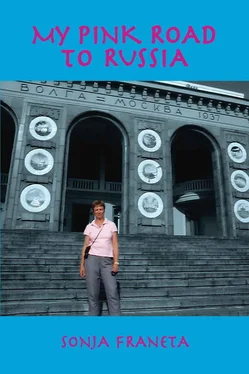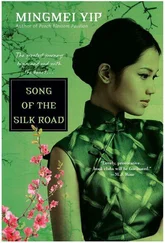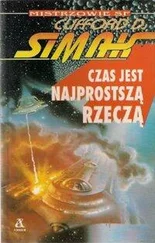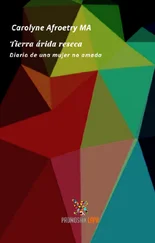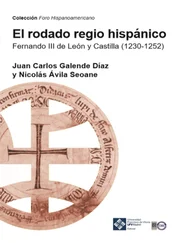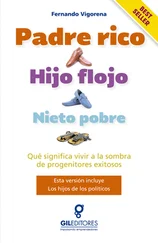On the other hand, Marina’s daughter Ariadna described her mother in emigration as deeply isolated. Many people visited her and thought highly of her writing, but in general Marina distanced herself from the rumormongering and backbiting rampant in the Russian émigré community. In addition, she was poor during her years in Europe. She took translating jobs that paid little but helped make ends meet. Valentin Bulgakov, the last secretary of the great novelist Leo Tolstoy, came to visit her in Prague; he worked with her and wrote a piece about her (quoted in Ariadna’s book):
I never saw her crying or even despondent. At times she could be sad, complain of her fate—for example, of her separation from Russia, of being overburdened with housework and household affairs that distract her from her literary work—but those (on the whole, rare) complaints and discontents of hers never sounded regretful or pitiful; on the contrary, they were always proud, I would even say defiant: defiant of fate and of people. In the not just poor but literally destitute setting of her apartment, Marina Ivanovna moved like a queen: calm and with confidence.
Her marriage, neither ideal or typical, survived even though Marina and Sergey spent many years apart. They had three children together: Ariadna (Alya), Irina, and later a son, Mur. Alone during the years of War Communism in Russia, when food, money, and work were scarce, she put her daughters in a state orphanage out of desperation, thinking they would be better taken care of, but little Irina died of malnutrition in 1920.
During that period of famine in Soviet Russia, Marina was close to the actress Sonechka Golidey but their relationship broke off. Years later, she wrote the novella Story About Sonechka, about the gay theater world in Moscow. When Marina and Ariadna emigrated to Europe in 1922, Sergey was very involved in White Russian (anti-Bolshevik) political work and later began spying for the Soviets. He personally participated in the murder of Trotsky’s son in Paris. Upon his return to the USSR in 1937 under orders from the NKVD (predecessor of the KGB), he was sent to the gulag. Meanwhile, Marina was not happy or easy to be with, but she continued writing and having affairs, moving from Berlin to Prague, to city and to countryside, and finally settling in Paris.
Writing in 1938, at the beginning of the war and the holocaust in Europe, she reflected the political situation in her poems:
Oh tears in my eyes!
Lament of anger and of love!
Oh Czechoslovakia in tears!
Spain in blood!
Oh Black Mountain
Darkening—the world!
It’s time—time—time—to
Return my ticket to the creator.
The rhyme in the original is lost in English, but the two verses are chantlike in Russian. The Black Mountain might be the Germans or simply the dark threat of Nazism and Fascism. Like her contemporary Virginia Woolf in England, Marina was very sensitive to and aware of the times she was living in, and felt the despair all around her. Unfortunately, by 1939, Marina was preparing to go back to Russia, which was no better than Europe and maybe worse. Was she already thinking about taking her life even as she yearned to return to Russia? Leaving seventeen years of emigration behind, she was going to a country where Stalin was putting people in prison camps and killing them for no reason. It was as if she was going to her grave in the Soviet Union, though she thought she was joining her husband, ostensibly ill in Moscow, and her daughter. (Marina’s sister had already been arrested and sent to a prison camp.) A few months after Marina arrived, Ariadna was mysteriously arrested and Sergey was eventually shot in October 1941.
Beginning to grasp the utter tragedy that was occurring in Russia, Marina had difficulty getting help and support in her transition, simply because people lived in unimaginable fear. Boris Pasternak, a fellow writer and Marina’s correspondent over many years, lived near Moscow but his friendship couldn’t help her. She began to do translations and work for a publisher. She couldn’t get her things from Europe because she was in a temporary living situation. Her young son was the only reason she kept struggling to survive and establish herself.
Perhaps remembering the good times in Moscow before 1922, she tried to form another passionate relationship through letters with a new acquaintance, Tanya, a young Muscovite. To love was still her foremost purpose in life. She even recalled Sophia Parnok in a letter to Tanya: “What I need from a person—is love! ’I need you like bread.’ No, I cannot imagine better words from a person. No, I do: ‘I need you like air.’” She explained that this had been her mantra twenty years earlier, when she was “the self that belonged to Sonechka.” Tanya did not become one of her lovers but stayed a friend, listening to Marina’s strange thoughts.
It is hard to imagine the times Marina lived in—how she responded to the war and confusion and tried to go on living and writing. During the Nazi attacks on Moscow in 1941, people were terrified, and many were evacuated. Marina and her son moved from Moscow to Golytsino, having no residential permit for Moscow, where Marina wanted to be. She finally did gain residency, and was able to work and communicate with other writers, but because of the imminent Nazi attacks, she and her son were evacuated to Yelabuga, a remote village in the Tatar Republic, very far from Moscow. There were a few writers around, but the mood was fearful and depressing. She had already asked a writer friend to take care of her son in case something happened to her.
On August 31, 1941, she hung herself in her small apartment while her son was not there. She left a note for him saying, “Forgive me, but to go on would be worse. I am gravely ill. This is not me anymore. I found myself in a dead end [ tupik ].” She was only forty-eight. Sadly, her son died soon after, drafted when he came of age and killed in battle in 1944.

St. Petersburg canal
In England, in 1941, Virginia Woolf and her husband were living in their Sussex country house because their London house had been bombed. The great novelist, who had had problems with mental illness, was also depressed about the war and bombings. She took her life by drowning herself a few months before Tsvetaeva’s death. Both women were affected by the violent times they lived in and the impossibility of continuing their work—a dead end, as Marina put it. We can never know why anyone kills herself, but the similarities and contexts are striking.
I first encountered the inimitable Marina Tsvetaeva and her poetry about thirty years after her death when I studied Russian at New York University starting in 1971. It was her writing, along with other brilliant Russian literature, that put me on a lifelong path of studying and reading and learning from Russian writers, historians, artists, and revolutionaries. Tsvetaeva held all this and more. She wrote and lived with a passion of her own. When I came upon her nontraditional ideas on gender and sexuality, perfectly evident in her poetry and other writings, she not only became family, but I breathed her, as she breathed Pushkin. Tsvetaeva declared in her prose piece “My Pushkin” that when she read Evgeny Onegin, she fell in love with both Evgeny and Tatyana (and maybe with Tatyana a little more).
Written in 1937, “My Pushkin” is Tsvetaeva’s reflection on her childhood and the roots of her poetic self. Alexander Pushkin was the Shakespeare of Russian poetry and Russians knew his work from childhood. Marina always wanted to go to the Pushkin Memorial in the center of Moscow as a little child, because the poet “infected me with love. The word love.” And the fact of Pushkin, who was part African, is the “opposite of all racist theories,” she said, declaring her love and admiration of black people and the big dark statue in Pushkin Square. In Pushkin’s “To the Sea,” the place where he was exiled near the Black Sea becomes a symbol of the loneliness of love. Marina also loved his famous novel-in-verse, Evgeny Onegin, which showed the impossibility of love—how it can be fatal in the end. Pushkin himself died in a duel at the age of thirty-seven.
Читать дальше
